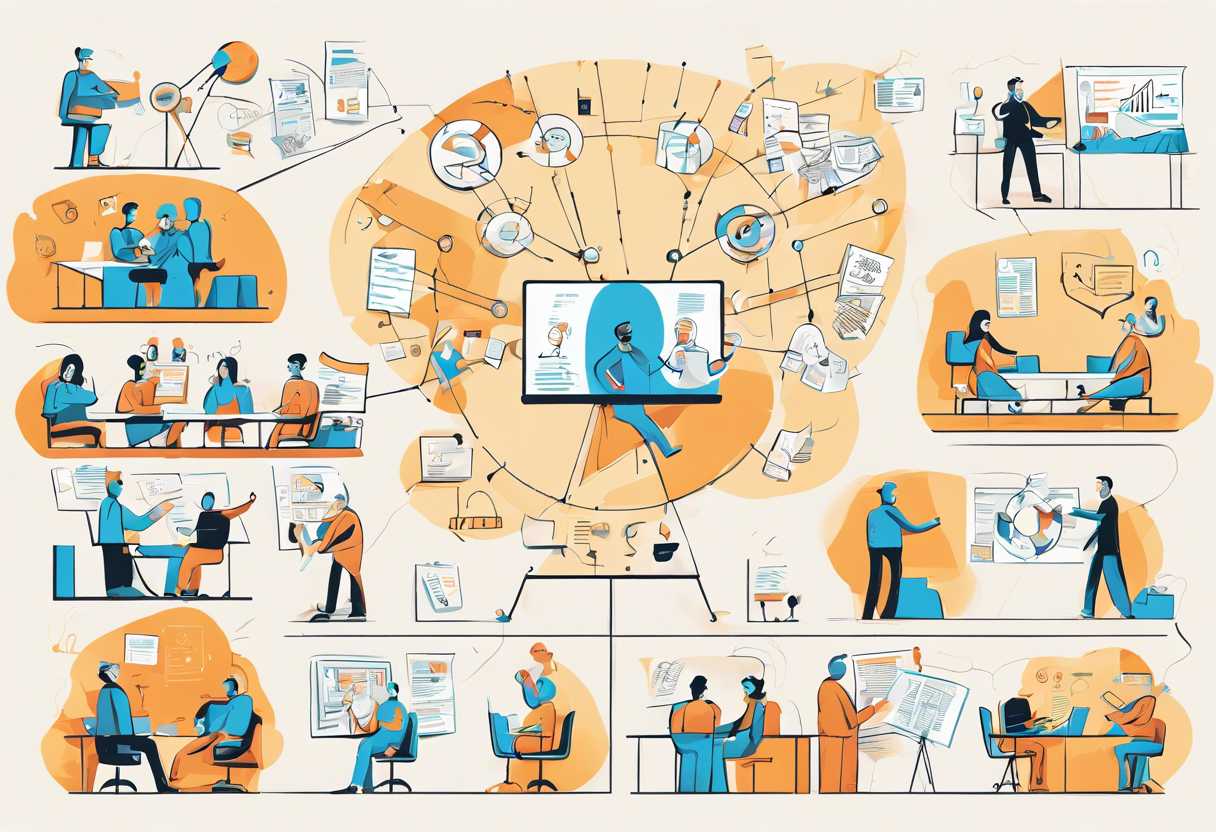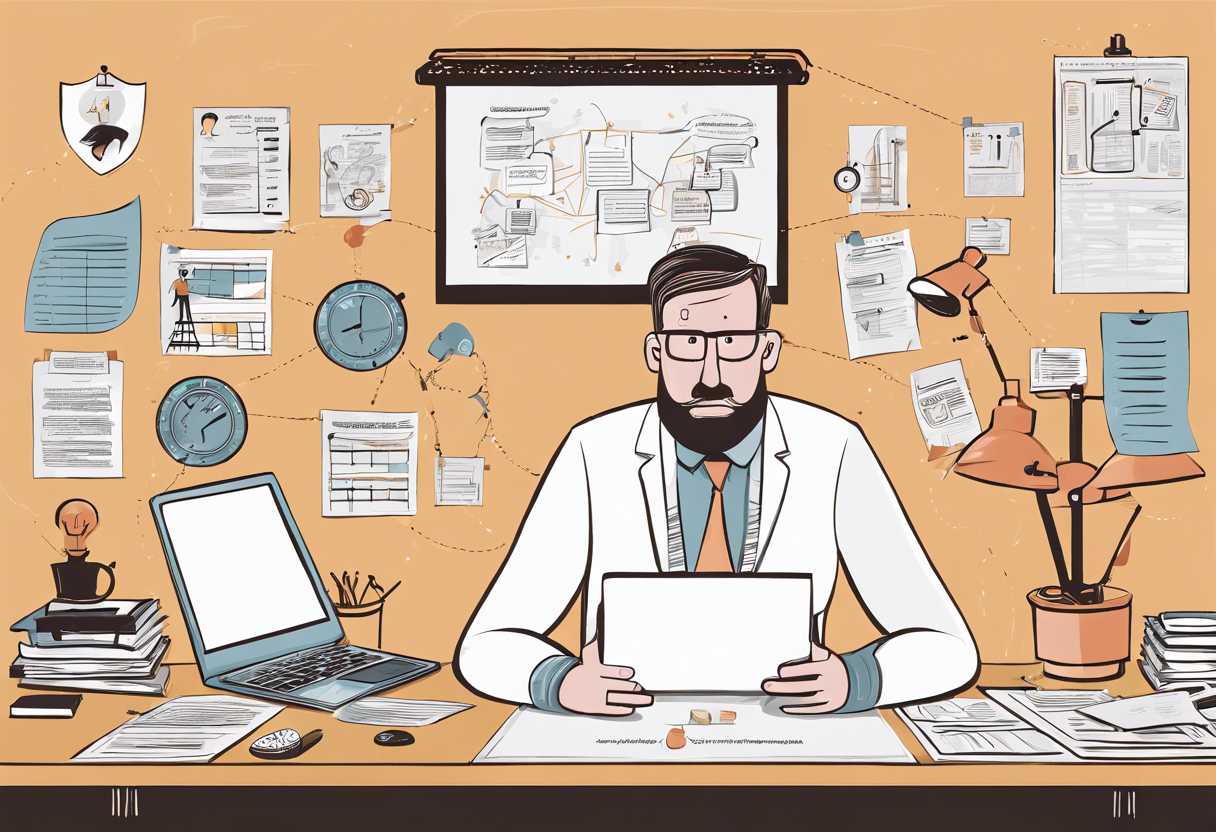Are you a Scrum Master looking to take your career to the next level and become an Agile Coach? Making the transition from Scrum Master to Agile Coach can be a rewarding and challenging journey. In this comprehensive guide, we will explore the step-by-step process of transitioning from a Scrum Master to an Agile Coach, developing the necessary skills and mindset, understanding the role of an Agile Coach, building a strong personal brand in the industry, and leveraging your experience as a Scrum Master to excel in your new role. Whether you are looking to expand your career opportunities or enhance your professional skills, this guide will provide you with the insights and strategies you need to make a successful transition. So, let’s dive in and explore how you can become an Agile Coach if you are a Scrum Master now.
Transitioning from Scrum Master to Agile Coach: A Step-by-Step Guide
Understanding the Role of an Agile Coach
As a Scrum Master, you are already familiar with the principles of Agile and the Scrum framework. However, transitioning to an Agile Coach role requires a deeper understanding of Agile methodologies beyond just Scrum. An Agile Coach is responsible for guiding teams and organizations in their Agile transformation, providing mentorship, and facilitating continuous improvement. It’s essential to familiarize yourself with Lean, Kanban, and other Agile frameworks to effectively coach teams in their Agile journey.
Developing Leadership and Coaching Skills
Transitioning from a Scrum Master to an Agile Coach also involves honing your leadership and coaching skills. As an Agile Coach, you will be working with multiple teams and stakeholders, requiring strong communication, facilitation, and conflict resolution abilities. Additionally, developing a coaching mindset is crucial in guiding teams towards self-organization and autonomy. Investing in leadership and coaching training programs can help you acquire the necessary skills to excel in your new role.
Building a Strong Network and Community
Networking and building a community of practice is vital for a successful transition to an Agile Coach role. Engage with other Agile Coaches, attend meetups, conferences, and workshops to learn from experienced professionals and stay updated with the latest industry trends. Building a strong network not only provides valuable insights and support but also opens up opportunities for collaboration and continuous learning.

Developing the Necessary Skills and Mindset to Become an Agile Coach
Understanding Agile Principles and Methodologies
One of the first steps in becoming an agile coach is to have a deep understanding of agile principles and methodologies. This includes being familiar with popular frameworks such as Scrum, Kanban, and Lean. Agile coaches should also be well-versed in the Agile Manifesto and its twelve principles, as well as the values and principles of the specific agile framework they are working with.
Building Strong Communication and Facilitation Skills
Effective communication and facilitation are essential skills for an agile coach. They must be able to communicate complex concepts in a clear and understandable manner, as well as facilitate productive discussions and workshops. This involves active listening, asking powerful questions, and creating a safe and inclusive environment for team members to collaborate and innovate.
Cultivating a Growth Mindset and Continuous Learning
Agile coaches should possess a growth mindset and be committed to continuous learning and improvement. This involves being open to feedback, embracing challenges, and seeking out opportunities for personal and professional development. Additionally, staying updated on industry trends, best practices, and emerging tools and technologies is crucial for staying relevant and effective as an agile coach.

Understanding the Role of an Agile Coach and How It Differs from a Scrum Master
The Role of an Agile Coach
An Agile Coach is a professional who helps organizations and teams adopt and improve their agile methodologies. They work with teams to help them understand and implement agile principles and practices, and they also provide guidance and support to help teams overcome challenges and achieve their goals. Agile Coaches often work with multiple teams and across different departments within an organization to drive agile transformation.
The Role of a Scrum Master
A Scrum Master, on the other hand, is a specific role within the Scrum framework. They are responsible for ensuring that the Scrum process is followed and that the team adheres to the principles of Scrum. The Scrum Master also acts as a facilitator, helping the team to remove any obstacles that may be impeding their progress. While the Agile Coach focuses on the broader adoption of agile principles, the Scrum Master is more focused on the specific implementation of the Scrum framework within a team.
Differences Between an Agile Coach and a Scrum Master
One of the key differences between an Agile Coach and a Scrum Master is the scope of their responsibilities. While an Agile Coach works at an organizational level, helping to drive agile transformation across the entire organization, a Scrum Master’s role is more focused on the day-to-day activities of a specific team. Additionally, Agile Coaches often work with multiple teams and departments, while a Scrum Master typically works with a single team.
Another difference is the level of authority and influence. Agile Coaches often have a broader mandate to drive change and influence decision-making at an organizational level, while a Scrum Master’s influence is typically limited to the team they are working with.
Building a Strong Personal Brand as an Agile Coach in the Industry
Establishing Your Expertise
As an Agile coach, it’s crucial to establish yourself as an expert in your field. This can be achieved through continuous learning and staying updated with the latest industry trends and best practices. Consider obtaining relevant certifications and attending industry conferences to enhance your knowledge and credibility. Additionally, sharing your insights and experiences through blog posts, speaking engagements, and social media can help showcase your expertise to a wider audience.
Cultivating a Professional Online Presence
Building a strong personal brand as an Agile coach also involves cultivating a professional online presence. This includes having a well-crafted LinkedIn profile, a professional website, and active engagement on relevant social media platforms. Consistently sharing valuable content, such as articles, case studies, and success stories, can help position you as a thought leader in the Agile community. It’s important to maintain a professional and consistent brand image across all online channels to build trust and credibility with your audience.
Networking and Building Relationships
Networking and building relationships within the Agile industry is essential for establishing a strong personal brand. Engage with other professionals in the field, attend industry events, and seek out mentorship opportunities to expand your network. Collaborating with other Agile coaches and professionals can not only enhance your knowledge and skills but also help you gain visibility and recognition within the industry. Building strong relationships can lead to referrals, partnerships, and new opportunities to further solidify your personal brand.
Leveraging Your Experience as a Scrum Master to Excel as an Agile Coach
Understanding the Transition
Transitioning from a Scrum Master to an Agile Coach requires a deep understanding of the differences in roles and responsibilities. As a Scrum Master, your focus is on facilitating the Scrum process and ensuring the team adheres to its principles. However, as an Agile Coach, you will be responsible for guiding multiple teams and helping them adopt agile methodologies across the organization. It’s essential to recognize that while your experience as a Scrum Master provides a solid foundation, excelling as an Agile Coach demands a broader skill set and a more strategic approach.
Developing Leadership and Communication Skills
One of the key areas where a Scrum Master can leverage their experience to excel as an Agile Coach is in developing leadership and communication skills. As a Scrum Master, you have likely honed your ability to lead and motivate a team, as well as communicate effectively with stakeholders. These skills are invaluable as an Agile Coach, where you will be working with multiple teams and guiding organizational leaders in embracing agile principles. By leveraging your experience in these areas, you can effectively influence and drive change at a higher level within the organization.
Expanding Your Knowledge and Expertise
While a Scrum Master is focused on the specific practices and ceremonies of the Scrum framework, an Agile Coach needs to have a broader understanding of various agile methodologies and frameworks. Leveraging your experience as a Scrum Master, you can expand your knowledge and expertise in other agile approaches such as Kanban, Lean, and DevOps. This broader understanding will enable you to provide more comprehensive guidance to teams and help them tailor agile practices to their specific needs. Additionally, pursuing advanced certifications such as Certified Scrum Professional (CSP) or ICAgile Certified Expert (ICE) can further enhance your credibility and effectiveness as an Agile Coach.
Conclusion
Transitioning from a Scrum Master to an Agile Coach is a challenging yet rewarding journey. By following the step-by-step guide outlined in this blog post, you can develop the necessary skills and mindset to excel in your new role. Understanding the key differences between an Agile Coach and a Scrum Master is crucial, as is building a strong personal brand in the industry.
As you embark on this new chapter in your career, remember to leverage your experience as a Scrum Master to set yourself apart as an Agile Coach. Your unique insights and expertise will be invaluable as you guide teams and organizations towards agility and continuous improvement.
Take the time to invest in your professional development, seek mentorship, and stay updated with the latest industry trends. By doing so, you can position yourself as a trusted and respected Agile Coach, making a meaningful impact in the world of agile methodologies.
Are you ready to take the next step in your career and become an Agile Coach? Embrace the opportunities that lie ahead, and continue to strive for excellence in your journey towards becoming a successful Agile Coach.

